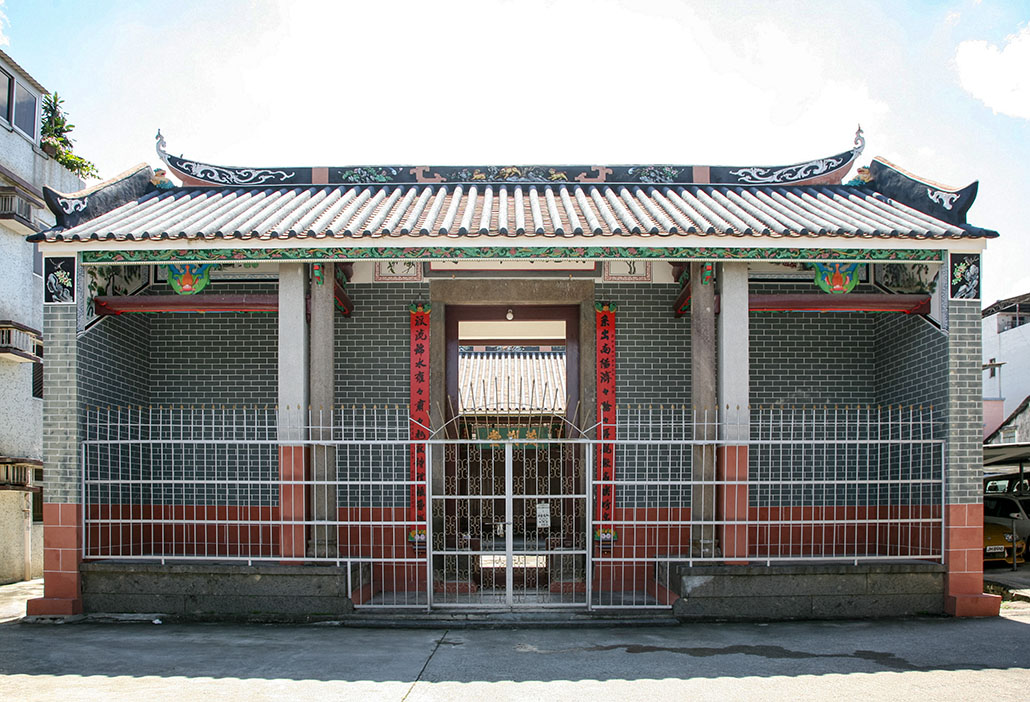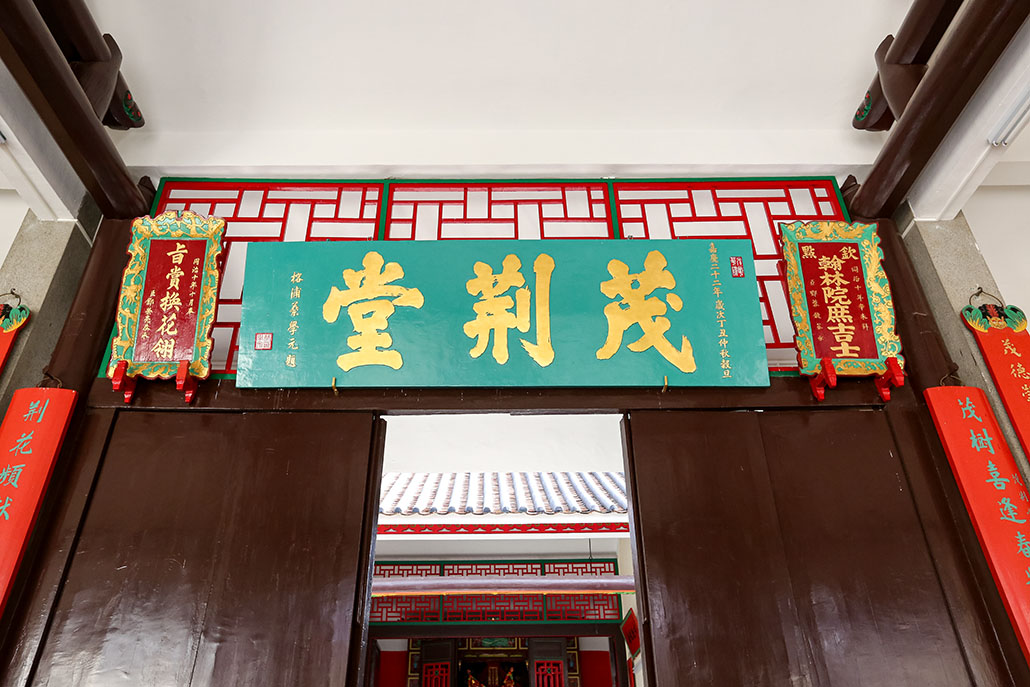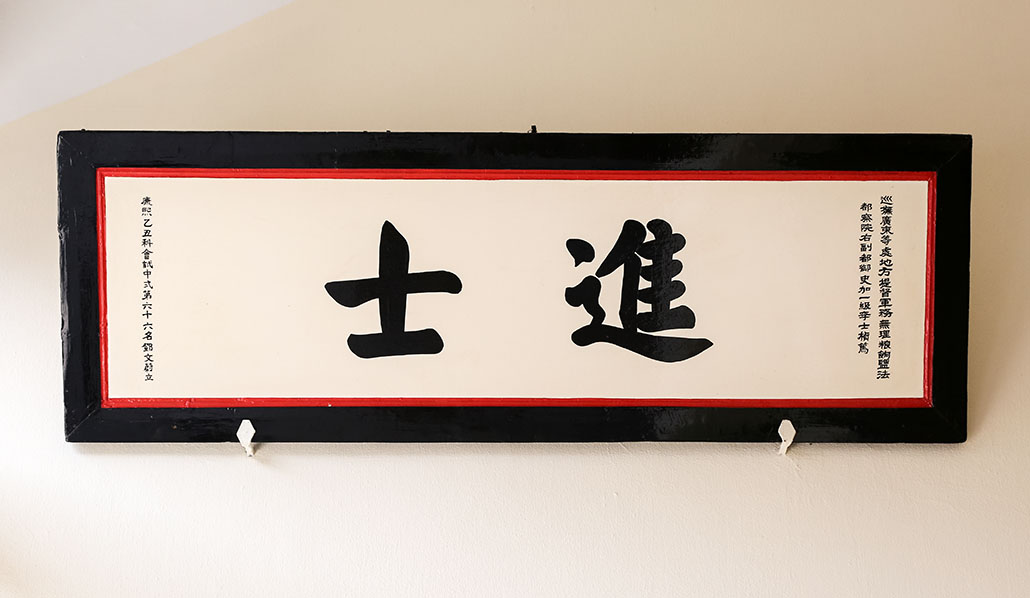Located in Shui Mei Tsuen, Kam Tin, Tang Chan Yui Kuen Ancestral Hall was built during the reign of Kangxi of Qing dynasty (1662–1722), as advocated by Tang Man-wai, Hong Kong's first jinshi of the Imperial Civil Service Examinations in Qing dynasty, in memory of the three sons (Tang Chan, Tang Yui and Tang Kuen) of Tang Hung-yee, the founding ancestor of the Tang clan in Kam Tin.
Tang Chan Yui Kuen Ancestral Hall is also known as Mau King Tong, meaning orchid in full bloom. The name implies abundant offspring, countless successful candidates in the Imperial Civil Service Examinations and abundant talent for the Tang clan. The plaque in the middle hall, with the inscription “Mau King Tong”, was written by Cai Xue-yuan in the twenty-second year of Jiaqing reign of Qing dynasty (1817). Cai Xue-yuan was a native of Shapu Village in Xin'an county. In the thirteenth year of Jiaqing reign (1808), he passed the Imperial Civil Service Examinations, in third class, and obtained the degree of jinshi, and was appointed tutor in the Palace. He went on to serve as a professor in Zhaoqing and Chaozhou, and was a renowned scholar at the time.
Tang Chan Yui Kuen Ancestral Hall is an exemplar of Lingnan traditional architecture. Constructed with grey bricks, it has a three-hall-three-bay layout with two courtyards. The ancestral hall is adorned with wood carvings, stone carvings, plaster mouldings and mural paintings; the plaster mouldings on the main ridges feature auspicious animals, flowers, birds, and scroll grass patterns; the plaster mouldings on the gable wall heads depict flowers and birds; and the mural paintings portray folktales, flowers and birds to symbolise good fortune.
Tang Chan Yui Kuen Ancestral Hall was used both for ancestral worship and, as a study hall to educate young clansmen. There are wooden title boards in the ancestral hall, such as the Jinshi plaque presented to Tang Man-wai, who passed the Imperial Civil Service Examinations in sixty-six place during the reign of Kangxi of Qing dynasty in 1685. They were to commemorate the clansman who obtained the jinshi in the Imperial Civil Service Examinations, to enhance the reputation of the clan and to encourage young clansmen to follow suit.
Address:
No. 201 Shui Mei Tsuen, Kam Tin, Yuen Long, New Territories.
Not open to the public




